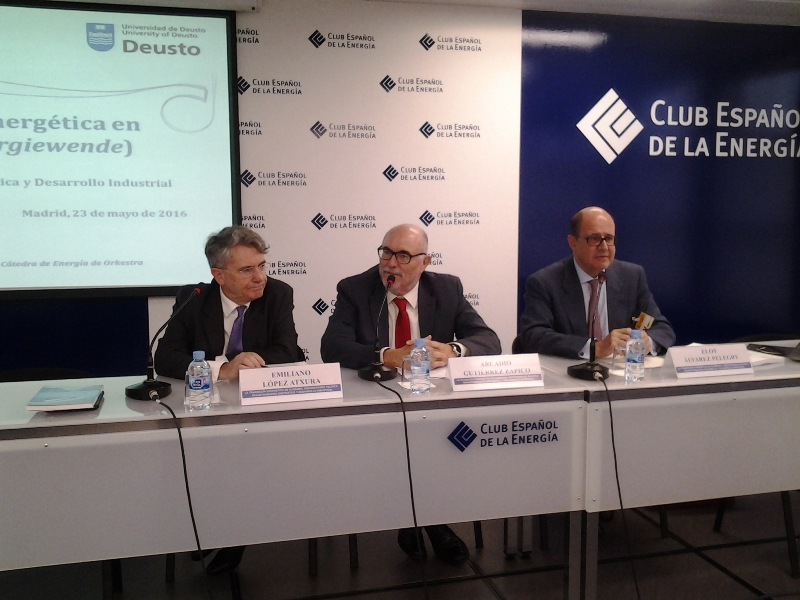23 May 2016

Orkestra’s Energy Department presented a report this morning in collaboration with the Spanish Energy Club. Eloy Álvarez Pelegry, director of the Department and co-author of the report, has studied the German case in depth: in recent years Germany has undergone major changes in production processes and energy consumption, with a particularly significant impact upon its industrial policy. This energy transition, known as “Energiewende”, transcends the borders of the country itself due to Germany’s influence within the framework of the European Union and the nation’s industrial and economic power.
Energiewende is a very ambitious programme which involves a number of changes by the year 2050 in order to achieve an effective reduction in the emission of greenhouse gases, by means of energy efficiency processes and development of renewable energies (wind, solar, photovoltaic, biomass and biogas).
At the same time, in this process of energy transformation in Germany, particularly influential is the political and social opposition to nuclear energy present in various spheres, which has ultimately led to the decision to proceed with accelerated decommissioning of nuclear power stations.
This evolution taking place in Germany means a substantial increase in the energy bill, which is being borne mainly by domestic consumers and small and medium-sized companies, as larger corporations benefit from certain exemptions.
It is precisely this fact which the study identifies as one of the weaknesses of the model, as the growing number of households at risk of energy poverty might represent a future obstacle for Energiewende. Like the non-maintenance of exemptions from premiums on renewables for energy-intensive industry, or the industrial fabric of small and medium-sized German companies that are not eligible for the exemptions and are having to face high energy prices.
In the opinion of the president of Orkestra’s Energy Department and president of Petronor, Emiliano López Atxurra, “this study could prove to be very useful when shaping our energy and industry policies with a view to the future, bearing in mind the increasing relevance of the question of energy transition and the influence of Germany upon the industrial and energy policies of the Union”.
Among the implications of and difficulties posed by Energiewende, highlighted by the report, the most important is related to the economy, given that the major investment in the development of renewables affect the end consumer and the competitiveness of the industry owing to the increase in final prices. Furthermore, to this outlay one has to add the cost of transport and electricity distribution, nuclear closure and decommissioning, and the development of new coal-fired power plants with high specific costs.
Nevertheless, the Energy Department report indicates that the significance of Germany in Europe means that the exemptions benefitting energy-intensive industry currently have a place within the context of the EU, and facilitate its competitiveness in the international context.












